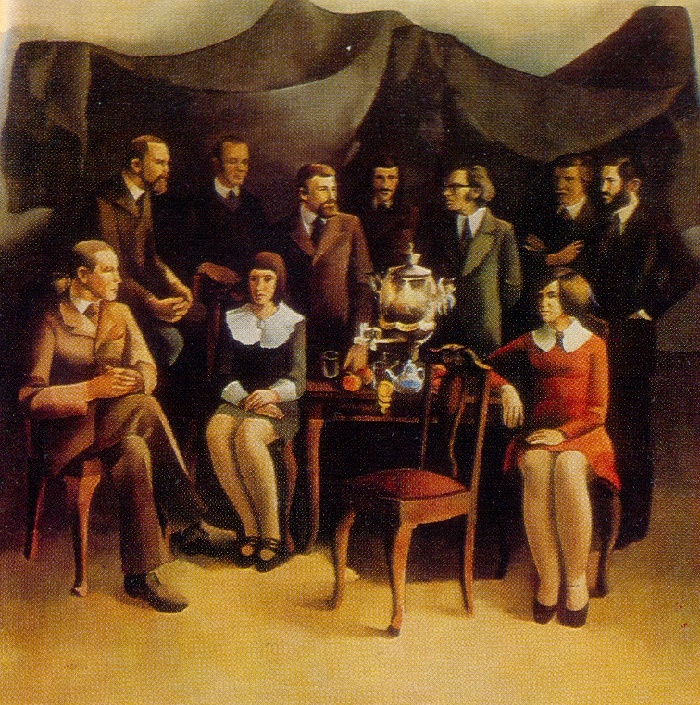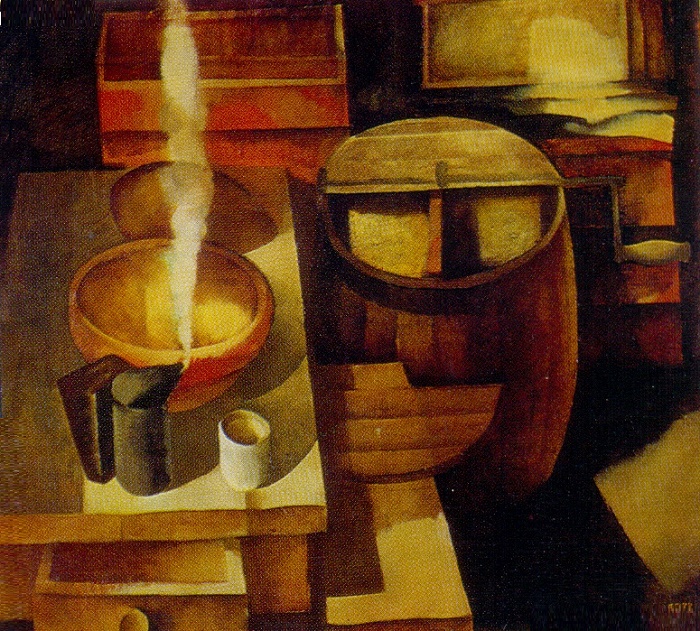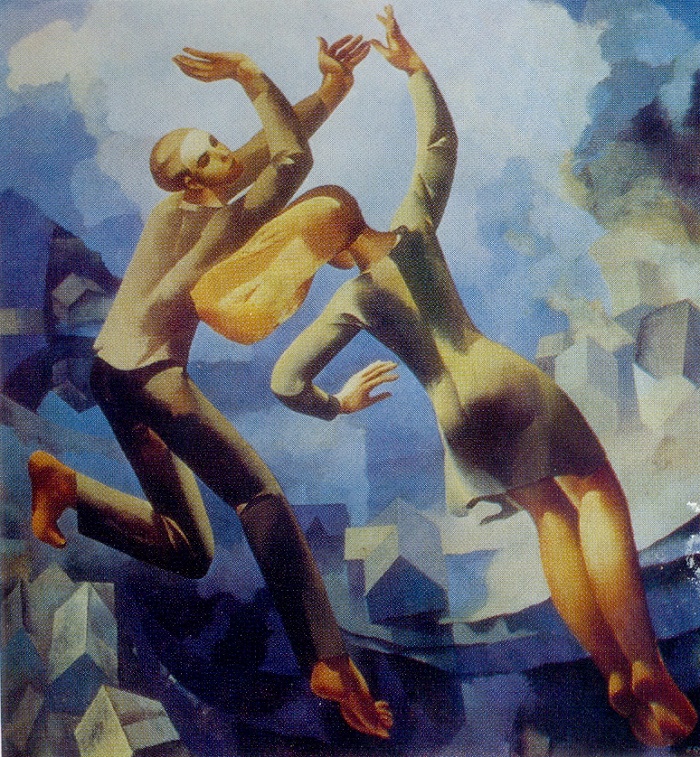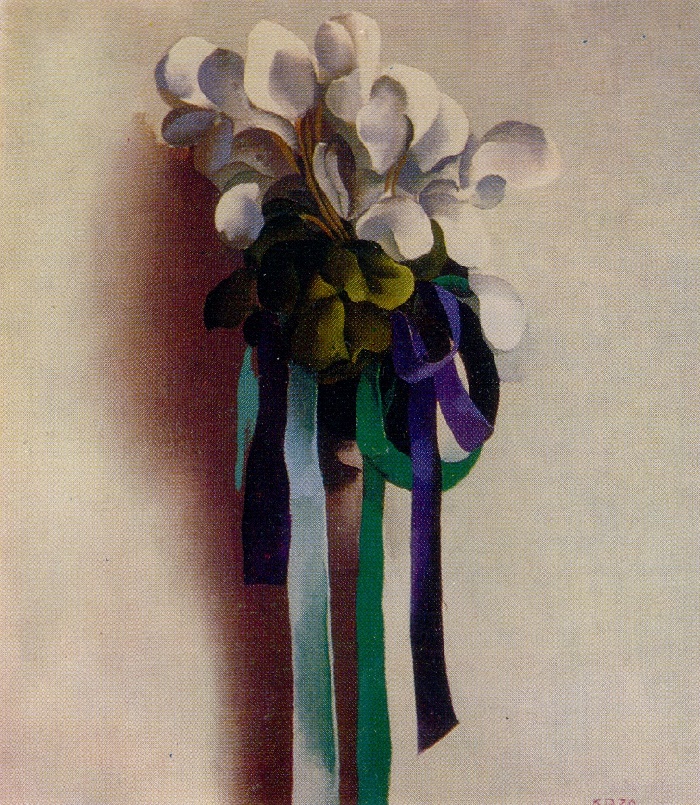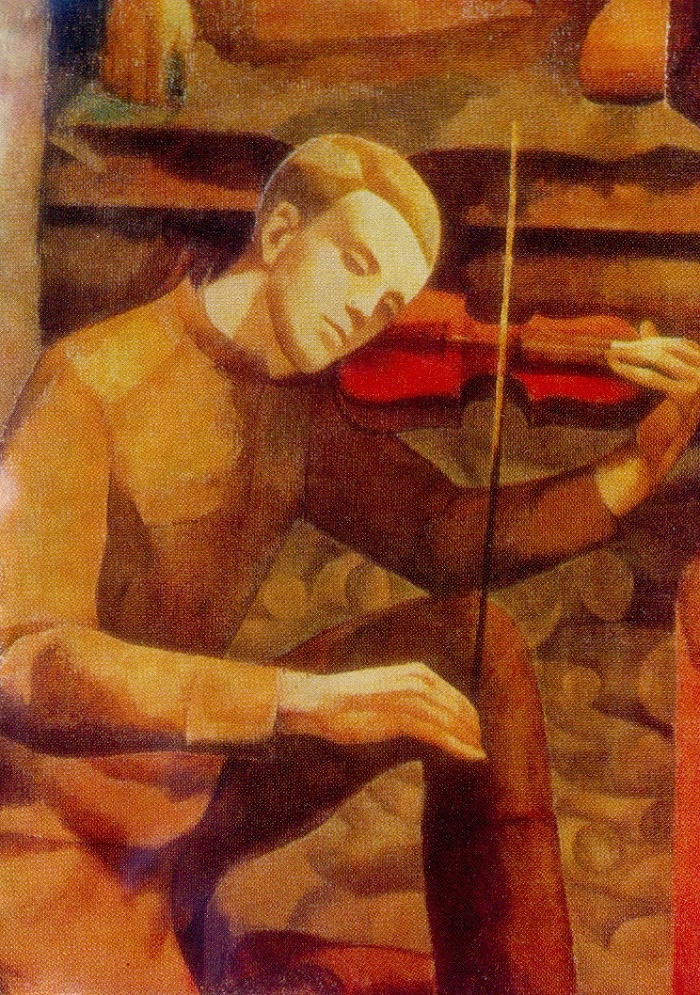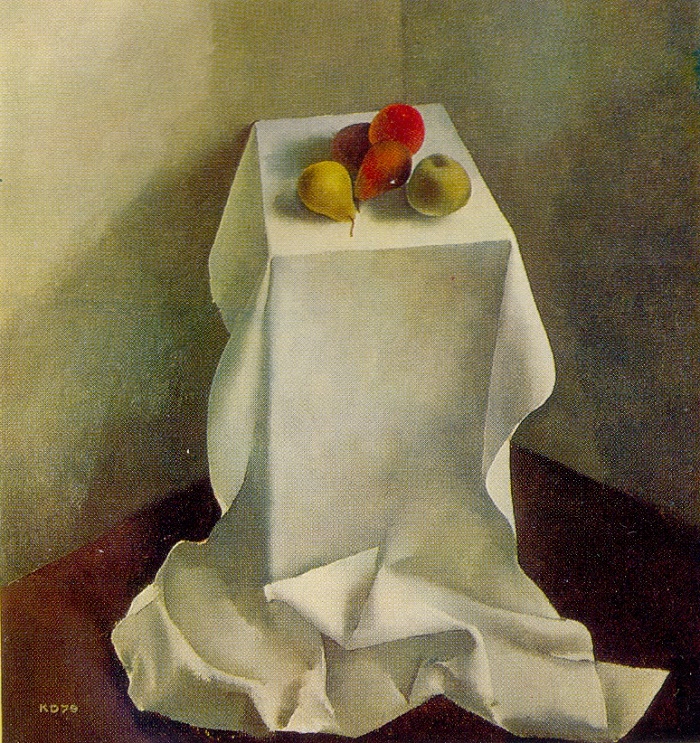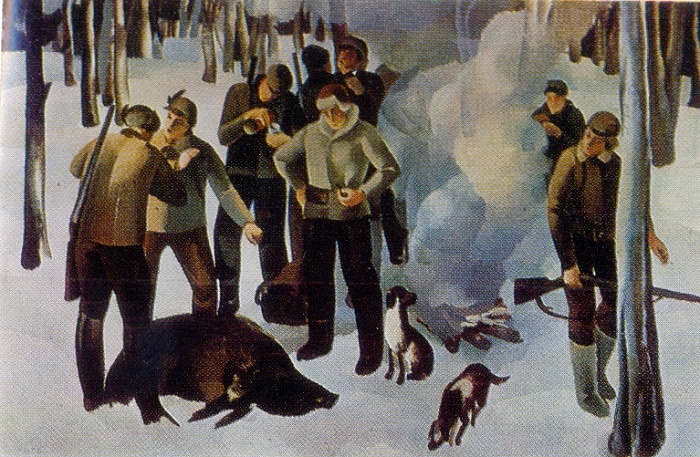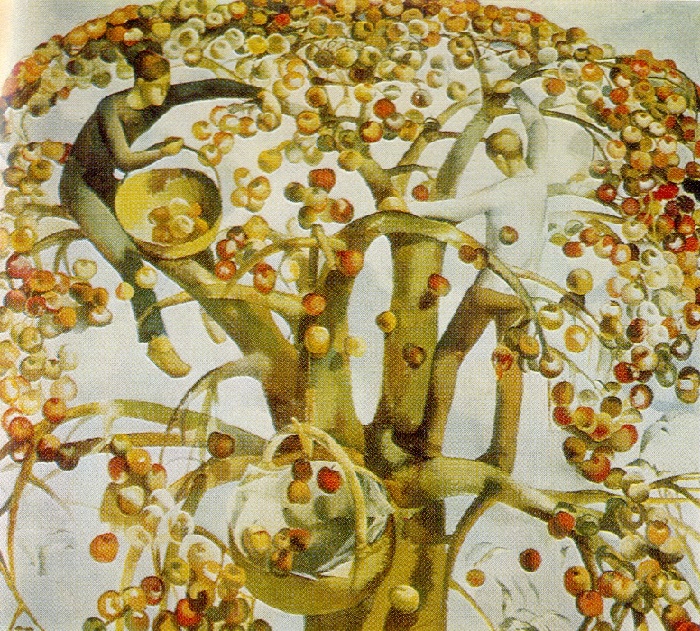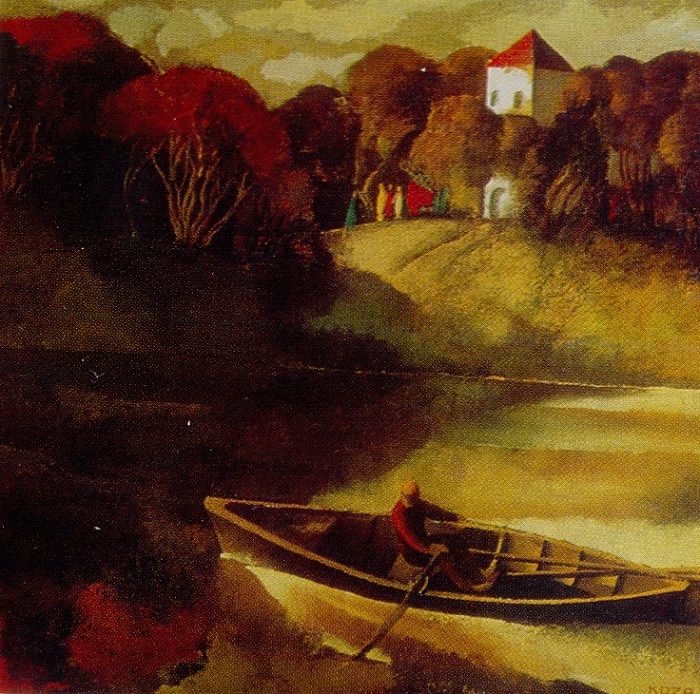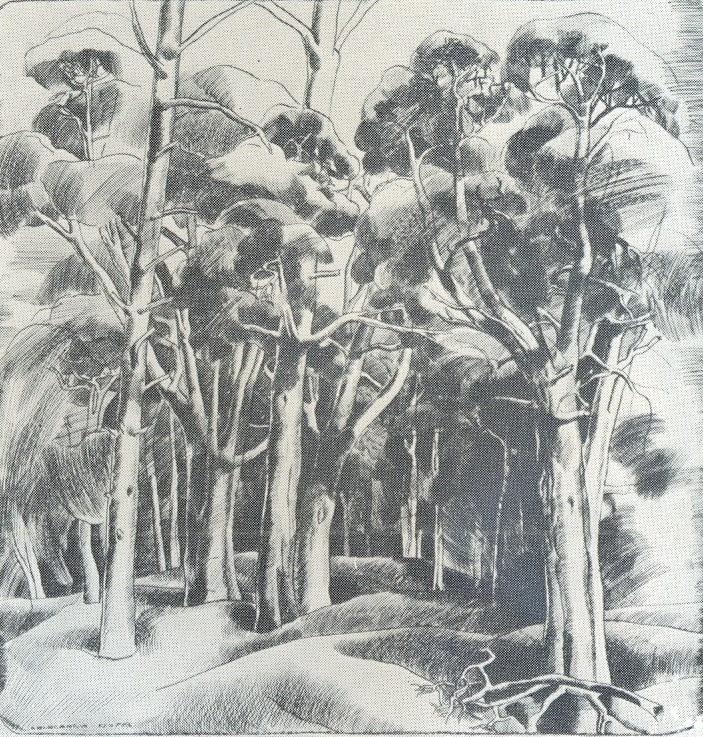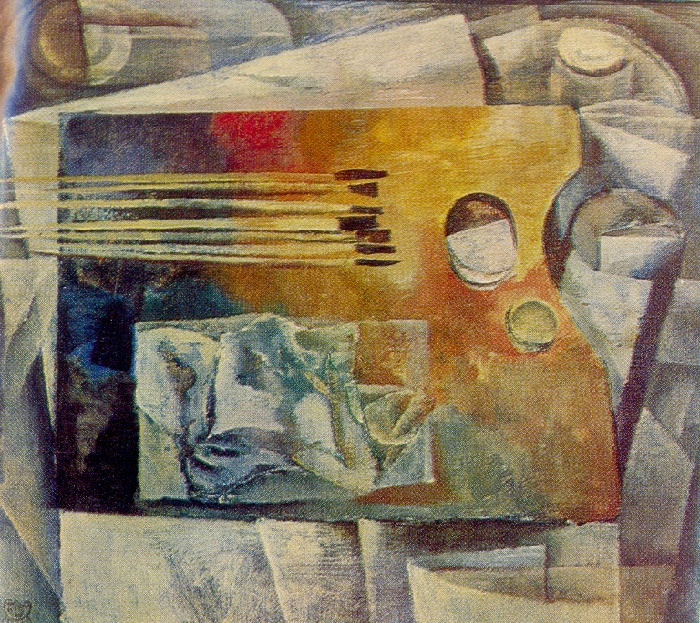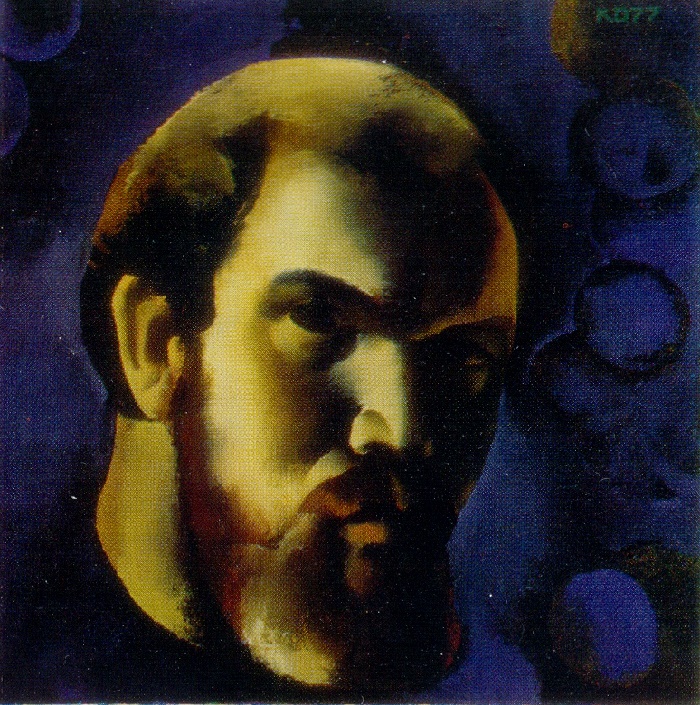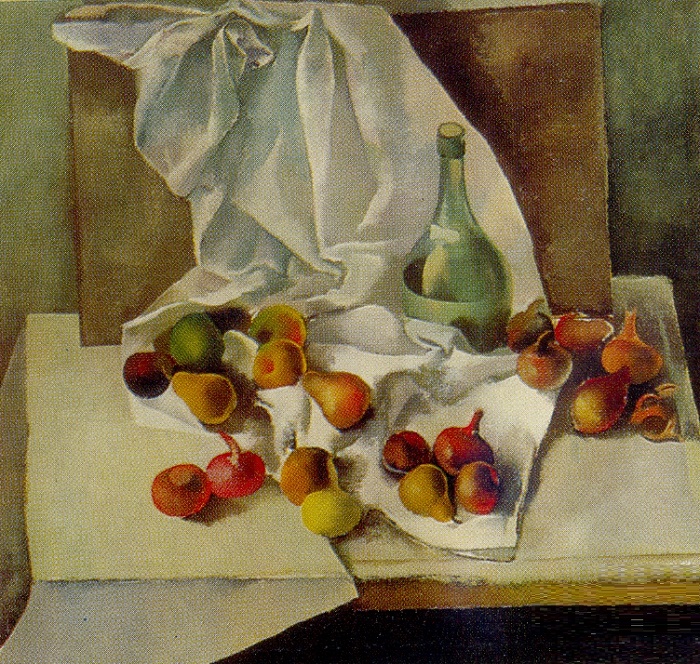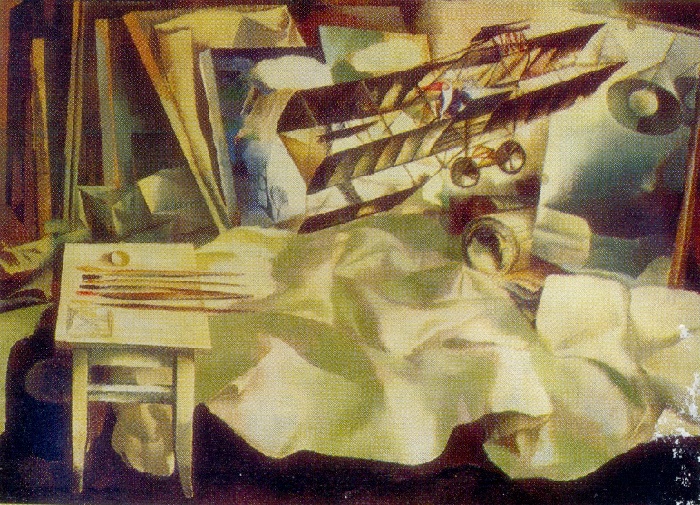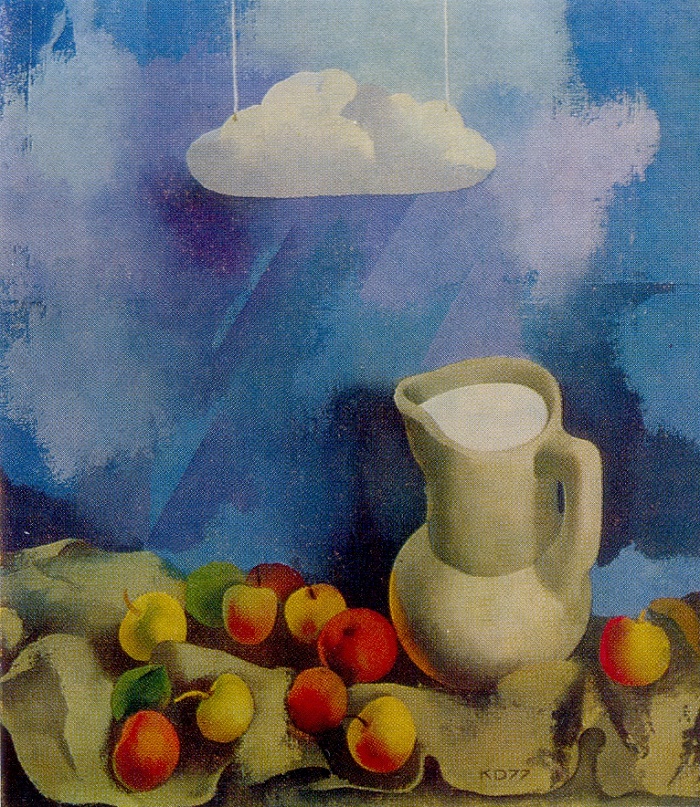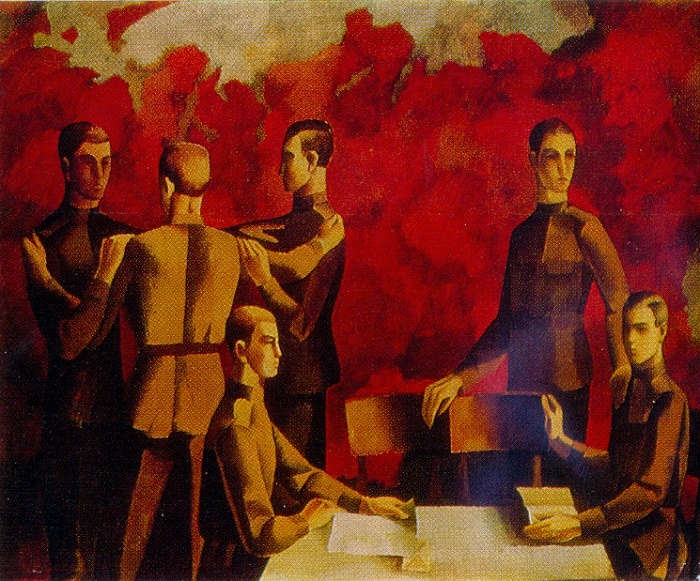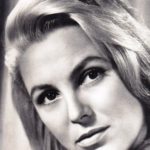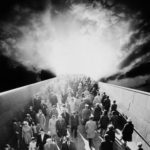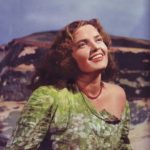Soviet Latvian artist Karlis Dobrais
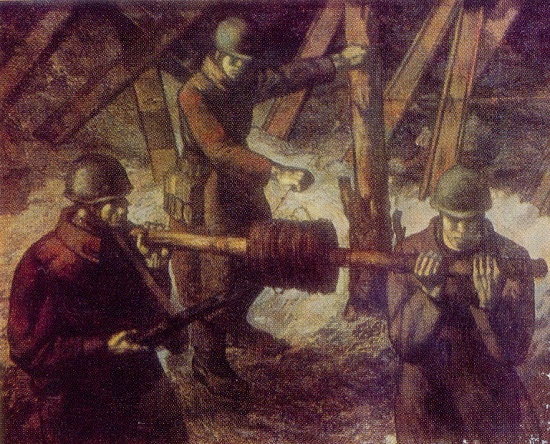
Soldiers. 1967. Oil, canvas. Ministry of culture of Latvian SSR. Painting by Soviet Latvian artist Karlis Dobrais (born 24 February 1943)
Soviet Latvian artist Karlis Dobrais
Born 24 February 1943 in the Sausnneja district of the Latvian SSR, in his childhood he attended Riga Art school of Rozental (1954—1961). And in 1970 he graduated from the State Academy of Arts of the Latvian SSR named after T. Zalkaln (the head of the thesis was E. F. Kalninsh).
The works of Karlis Dobrais attract the attention of spectators and art critics with an almost classical quality factor, a well-considered composition, every detail and every smear. Dobrais seemed to restrain the desire characteristic of any young and novice master to quickly find and approve his artistic self, more trust in the slow but steady organic growth process, collecting and accumulating creative forces.
In one of the first significant works of Dobrais – “Soldiers” (1967) – for all the dissimilarity of its stylistic manner to the almost sculptural pictorial language, which has become a kind of visiting card of the artist, the gravity and seriousness of the theme, clear logic of composition.

A song of a soldier. 1969. Oil, canvas. Udmurt Art museum, Izhevsk. Painting by Soviet Latvian artist Karlis Dobrais (born 24 February 1943)
In his works, done in his student years, such as Palitra (1969) or Still Life with an Aircraft Model (1970), you clearly feel the desire to show and confirm at least the means of still life painting – this less narrative and recognized “Laboratory” genre – their individual experience of the subject, and consequently, of the world around them.
A significant event in the life of Dobrais, which became a kind of creative stimulus and gave him the opportunity, without giving up his former ideals, was his life and work in Daugavpils. In 1970, several graduates of the State Academy of Arts of the Latvian SSR, including Dobrais, used the opportunity to work in the newly created creative workshops in Daugavpils.
Moved to Daugavpils, young masters who belonged to the same artistic generation decided to work together. The goals common to all members of this group, which included not only easel painters, but also designers, sculptors, posters and arts and crafts masters, had a clearly expressed social and educational character. Young artists took over the organization of aesthetic education in the city, sought to raise the overall level of the art culture of the inhabitants of Daugavips, their interest in art.
From the second half of the 1970s, the most interesting line in Dobris’s artistic practice was still life, one of the most chambered and “private” after self-portraits of painting genres, where the master remains alone with his personal “thing” environment.
Still lifes of Dobrais are obviously staged, underlined. The artist does not seek to evoke in the viewer the impression of the peeped life of things, to create the illusion of naturalness, the life conditionality of the compositions composed by these things.
Exhibitions:
1970 – Republican art exhibition, to the centenary of the birth of Lenin. Riga
1971 – The first exhibition of works by young artists of Daugavpils. Daugavpils, Liepaja, Svencione
1972 – Republican art exhibition “The USSR is our Motherland”. Riga
All-Union Exhibition of works by young artists. Moscow
1973 – The second exhibition of works of artists of Daugavpils. Liepaja
All-Union Art Exhibition “The Guardian of the World”. Moscow, Baku
All-Union Art Exhibition “The USSR is our Motherland”. Moscow, Kishinev, Odessa, Baku
All-Union Art Exhibition “Sport in the Art of the Young”. Moscow
Exhibition of artists of the Lithuanian, Latvian and Estonian SSR, dedicated to the 50th anniversary of the USSR. Moscow
1974 – The third exhibition of works of artists of Daugavpils. Daugavpils, Liepaja
1975 – The fourth exhibition of works of artists of Daugavpils. Daugavpils, Jelgava, Liepaja
Republican art exhibition “Glory to Labor”. Riga
1976 – The fifth exhibition of works of artists of Daugavpils. Daugavpils, Riga
1977 – All-Union Art Exhibition “Young Guard”. The Life of the Country of Soviets, Moscow
Source
“New Names” series, illustrated album “Karlis Dobrais”. Publisher Soviet Artist, Moscow. 1981
Soviet Latvian artist Karlis Dobrais

A game. Portrait of students of the Art Institute of Repin. 1979. Oil on canvas. Directorate of exhibitions of the Union of Artists of the USSR

